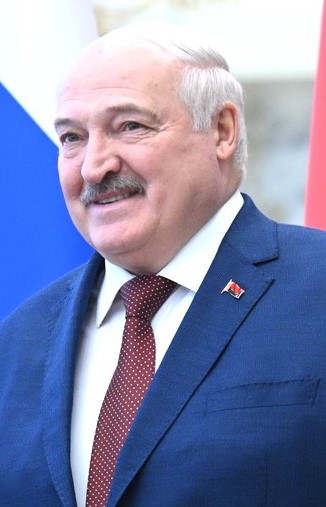The stage was set—five candidates, all running to become the next president of Belarus. Among them, Alexander Lukashenko sought to claim his seventh consecutive term. For 31 years, since the passing of the Constitution of Belarus in 1994, Lukashenko has served as the head of the state. His iron-fisted rule—paired with the fact that he is Belarus’s first and only president so far—earned him the nickname of “Europe’s Last Dictator.”
Despite the appearance of competition to the public, the 2025 Belarus Presidential Election drew much anger from Lukashenko’s exiled political opponents. The United States and the European Union have also expressed concern over the fairness of the election since independent media are banned in Belarus and Lukashenko’s opposition faces a brutal crackdown.
“Lukashenko doesn’t have any legitimacy,” Kaja Kallas, the EU’s top diplomat said.
Lukashenko won the election by a landslide with over 87% of the people’s vote. The 2025 election was not his first experience staging an election, however; in 2020, Lukashenko allowed now-exiled opposition leader Sviatlana Tsikhanouskaya to run for president, not realizing the major consequences that would follow. Although Lukashenko was declared the winner with 80% of the vote in 2020, the loss of Tsikhanouskaya, widely considered the true winner by opposition groups, sparked months of mass protests. This led to Lukashenko’s unrelenting crackdown on dissent and free speech. More than 65,000 people were arrested, thousands injured and beaten.
Now, Tsikhanouskaya speaks up again to call for an expansion of Western sanctions against Belarusian companies and individuals that are involved in the repression of Lukashenko’s opponents.
“As long as Belarus is under Lukashenko’s…control, there will be a constant threat to the peace and security of the entire region,” she said.
International observers believe that the election this year was scheduled to take place last January rather than August to prevent protests from occurring again. Lukashenko’s reliance on Russian President Vladimir Putin has also allowed him to maintain a vice-like grip on Belarus, banning all criticism and dissent against him.
Back in 2022, Moscow used Belarusian territory to launch an invasion against Ukraine under Lukashenko’s approval. Belarus also hosts some of Russia’s tactical nuclear weapons.
“It’s better to have a dictatorship like in Belarus than a democracy like Ukraine,” Lukashenko said.
Lukashenko’s rule over Belarus for the past 31 years has been a brutal campaign against all dissent. Authorities have created an unsafe environment that silences anyone who dares to speak out against the government. Although international organizations condemn Lukashenko’s actions and call for sanctions, his control over Belarus continues to crush opposition voices.


